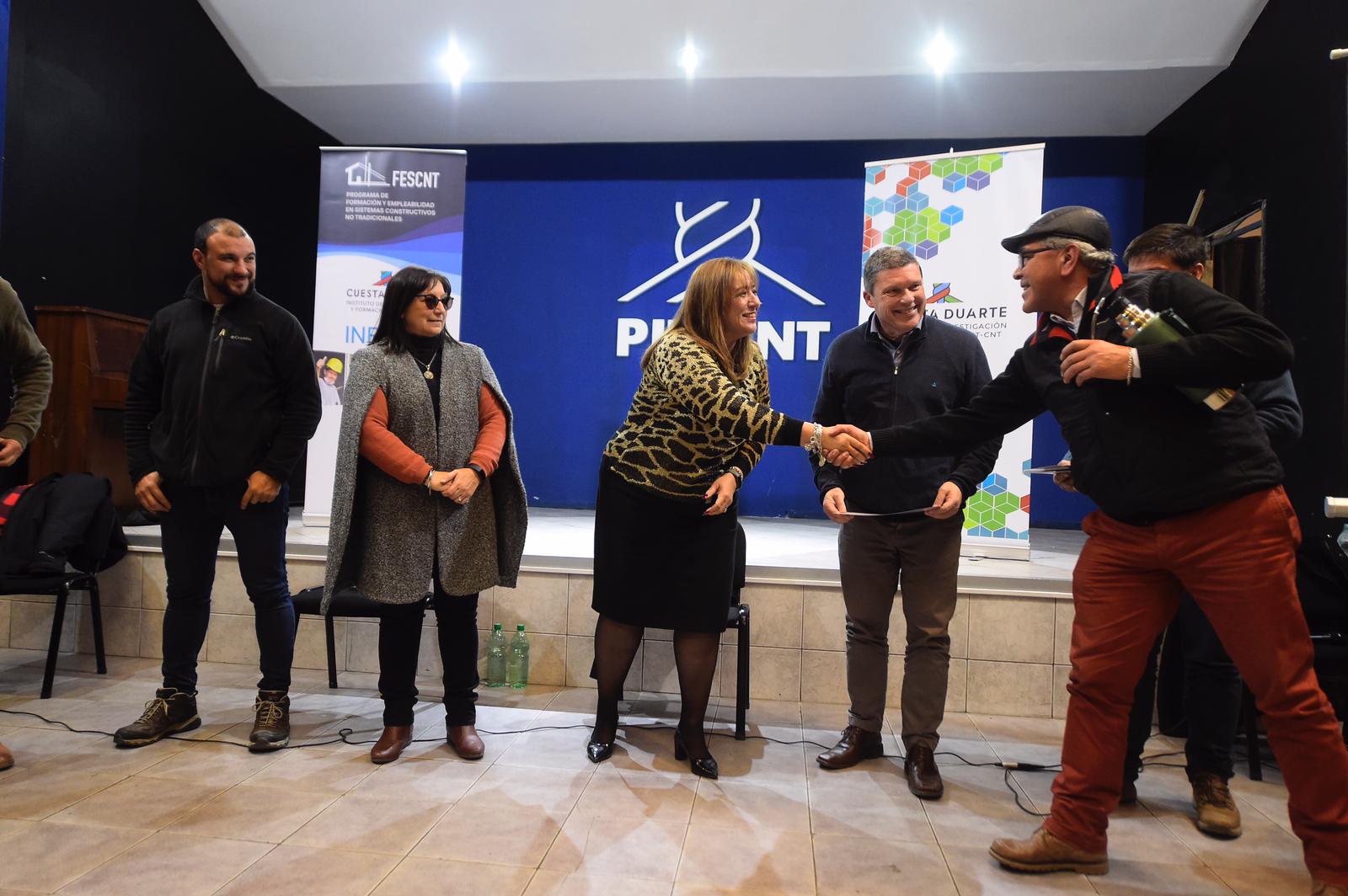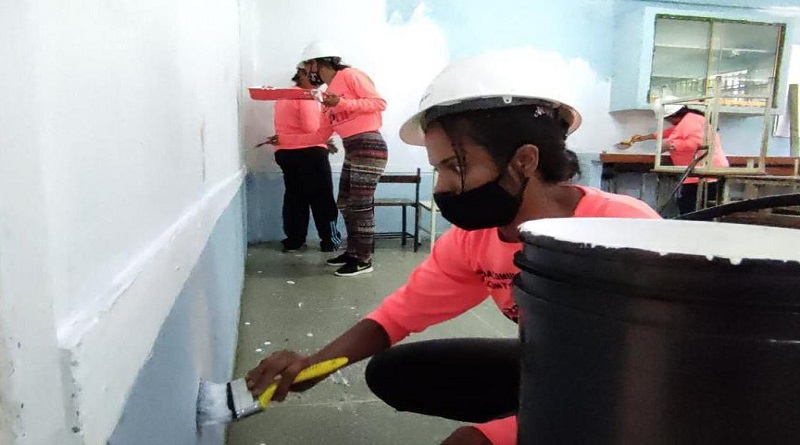The Minister of Housing, Irene Moreira, participated this Friday at the PIT-CNT headquarters in the delivery of certificates to 120 workers who completed their participation in the Non-Traditional Construction Systems Training Project, carried out within the framework of an agreement between Inefop and the Cuesta Duarte Institute.
In this sense, the minister highlighted the importance of training and explained that the Ministry has promoted this type of system.
“These 120 people who were trained are going to be working on these systems, not only in their cooperatives, but it can also be a tool for later job placement”indicated the minister.
Regarding the non-traditional system, Moreira highlighted the advantages of this procedure that allows to reduce the time and the value of the square meter, considering that both aspects are “very important when accessing a home”.
And he clarified, in turn, that “Not because it is a non-traditional system is it of poor quality, but on the contrary: it has all the necessary elements to be a very good option.”
For his part, the member of the Union Housing Program, Eduardo Burgos, explained that the objective of the training was to “certify what some already knew how to do.”
“The cooperatives of the Union Housing Program need to hire experienced personnel. Each cooperative hires about 6 workers for each work. And the PVS currently has 85 works. That gives a significant number of skilled labor that is needed”Burgos said.
As he explained, the Inefop diploma “allows those workers who have accessed the training to have documented what they know.”
He said that these workers will be part of a job bank that was created this Friday, in conjunction with Inefop and the Cuesta Duarte Institute, and coordinated with the Cet PVS and the Union Housing Program, which will serve as input for the cooperatives to the time to hire qualified employees.
Burgos defined himself as a defender of non-traditional systems and added that Uruguay and companies should begin to use this type of construction more.
“The world is going towards the industrialization of production processes that are increasingly larger and, in this case, machines are incorporated into the processes that require trained personnel”, Burgos said.
He affirmed that knowledge “does not take up space” and that everything that workers can learn, “is going to make them better when it comes to entering the labor market, which is so voracious and complex.”
For his part, the architect Pablo Antonaz, general coordinator of the project, highlighted the training needs and highlighted the creation of the job bank, given that cooperatives require specialized labor and for that this type of training is essential.
He announced that next month they will continue training workers in Maldonado. It has already been done in Montevideo, Canelones and Durazno.







